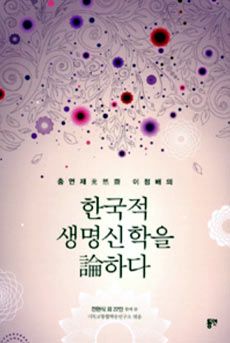도의 신학 2
김흡영 (지은이)동연출판사2012-03-27
책소개
‘한국 신학’, ‘아시아 신학’, ‘우리 신학’ 등에 천착해온 김흡영 교수가 쓴 <도의 신학> 두 번째 책. 저자는 서구 신학은 그들의 자리에서 최선을 다해 노력했던 그들의 신학, 곧 남의 신학이지 결코 우리의 자리에서 우리가 하는 우리의 신학이 아니라고 강변한다. 한국 신학도 많은 시행착오를 각오하고 바로 서서 걸어가기를 연습해야 한다는 것이다.
이미 남들에 의해 결론이 내려진, 남들의 것에 주석을 붙여 내 것인 양하는 것이 아니라, 하느님 앞에서 솔직하게 우리의 이야기를 하고자 하는 것이다. 저자는 그렇기 때문에 그것들은 결코 최종적인 결론이라 할 수 없고, 모두 하느님의 도를 묵상하며 추구하는 도상에 있는 것들이라고 한다. 곧 도상에 있는 도의 신학이라는 것이다.
이 책은 3부 12장으로 구성되어 있다. 제1부에서는 ‘도의 신학의 배경’을 다루고, 제2부에서는 ‘도의 신학 서설’을 말한다. 제3부에서는 ‘도의 신학과 자연과학’이라는 제목하에 자연과학과 동양 종교, 그리스도교 신학과의 삼중적 대화에 대해 다뤘다.
목차
제1부 도의 신학의 배경 -유교 문화와 그리스도교 신학의 만남
제1장|우리 신학을 찾아서
1. 우리 신학의 정체성을 찾아서
2. 한국 개신교 신학에 대한 비판적 대안
3. 우리 신학을 향하여
제2장|그리스도교의 효(孝)사상
1. 들어가는 글
2. 구약성경의 효사상
3. 신약성경의 효사상
4. 부모의 자녀에 대한 사랑
5. 삼위일체 하느님과 부자유친
제3장|양명학을 통해 본 신학: 왕양명과 칼 바르트의 유교와 그리스도교 간의 대화
1. 근본적 상이성 안에서의 두터운 유사성(異中同)
2. 공동적 인간성의 도(道)에 대한 추구
3. 인간성의 도(道)로서의 예수 그리스도: 유교적 그리스도론을 향하여
4. 새로운 우주적 인간성의 도(道)
5. 맺는 말
제4장|한국 신학 50년과 도의 신학: 한국 조직신학 사상사
1. 들어가는 말
2. 한국 신학의 광맥: 박형룡, 김재준, 정경옥, 류영모
3. 교회교의학 모형: 교회의 분열
4. 정치신학 모형: 민중신학의 출현
5. 문화신학 모형: 토착화 논쟁
6. 구성신학 모형: 도의 신학
7. 맺는 말
---
제2부 도의 신학 서설 -한국적 신학 패러다임의 모색
제5장|도(道)의 신학 서설
1. 현대 신학의 3대 모형
2. 우리 신학의 구성: 도(道)의 신학
제6장|도(道) 그리스도론(Christotao) 서설
1. 현대 그리스도론의 화두
2. 도(道): 예수 그리스도에 대한 새로운 근본 은유
3. 도-그리스도론에 대한 한국적 전거들
4. 신-인간-우주적 도(道)로서의 예수 그리스도
제7장|도(道) 삼위일체론 서설
1. 서론: 삼위일체론의 동양화(Easternization)
2. 유교와 도교의 통찰들
3. 동아시아적 삼위일체론: 유교-도교적 관점에서 재조명
4. 검토와 결론
제8장|생명 ·생태계의 위기와 도의 신학
1. 들어가는 말
2. 하늘땅사람: 신-우주-인간적 비전
3. 하늘땅사람의 참길(신-우주-인간적 묘합): 도의 신학
4. 아! 숨님의 솟구침: 억눌린 생명의 기사회우주전기
5. 맺는 말
6. 후기
제3부 도의 신학과 자연과학 -신학 ·동양 종교 ·자연과학의 삼중적 대화
제9장|종교와 자연과학 간의 대화를 통해 본 인간: 사회생물학의 도전과 종교적 대응
1. 들어가는 말
2. 자연과학과 종교 간의 관계
3. 사회생물학의 도전
4. 사회생물학에 대한 종교적 대응
5. 맺는 말
제10장|사이버 공간의 본질과 영성, 그 종교적 대안
1. 사이버 공간(cyberspace)의 출현
2. 사이버 공간과 장자의 꿈: 이 시대의 화두
3. 사이버 공간의 본질: “탐구의 성배”
4. 사이버 공간: 또 하나의 바벨탑?
5. 사이버 공간에서의 종교의 역할: 틈의 성화론
제11장|생명의 존엄성: 인간 배아줄기세포 논쟁과 경(敬)의 신학
1. 생명의 정치해석학: 오늘날의 화두
2. 배아는 생명인가?
3. 인간의 존엄성이란?
4. 인간이란?
5. 존경이란?
6. 나가는 말: 경(敬)의 신학을 향하여
제12장|도의 신학과 자연과학: 자연과학, 동양 종교, 그리스도교 신학 간의 삼중적 대화
1. 상황(Context): 아시아 그리스도교(Asian Christianity)
2. 방법론: 겸허의 삼중적 대화(Trilogue of Humility)
3. 내용(Contents): 몇 가지 예비적인 제안들
부록
1. 나는 왜 신학자가 되었는가? - 신학자가 된 우주항공학도의 고백
2. 통섭론을 반대한다 - 한국 윌스니언의 오류들
3. 도올 김용옥의 그리스도교 비판에 대한 소고
4. 김용준, 『과학과 종교 사이에서』 서평
----------------------------
책속에서
저자의 말 중에서
신학을 하면서 계속 깨닫는 것은 완벽한 신학이란 누구에게도 있을 수 없으며, 신학은 항상 부족할 수밖에 없는 것이고 궁극적으로 신앙공동체의 공동 작업이어야 한다는 것이다.
나의 일관된 주장은, 부족하더라도 더 이상 남의 신학이 아닌 ‘나의 신학’, ‘우리의 신학’을 해야 한다는 것이다. 서구 신학에 비해 신학의 역사가 짧은 우리는 아직 신학적 내공이 부족해서 미흡한 점이 많을 수밖에 없다. 그렇다고 창피나 망신을 당하는 것이 두려워, 남의 신학을 모방하고 흉내나 내는 학습이나 표피적 성형수술을 하는 수준에 머물러서는 안 된다는 것이다. 신학적 사대주의와 식민주의적 근성을 극복해야 한국 신학이 그래서 한국 교회가 바로 설 수가 있다. 마틴 루터가 말한 대로 ‘하느님 앞에서(coram Deo)’ 자기의 실존을 분명하게 발견하는 데부터 신학은 시작된다. 하느님 앞에서 발가벗은 우리의 모습으로 우리 자리를 찾고, 그곳에서 우뚝 바로 서야 하는 것이다. 곧 하느님 앞에서 나의 나됨을 고백하는 바로 그것이 신학의 출발점이다. 하느님 앞에서 나의 나됨으로의 독립이요, 그에 따른 나의 입장을 갖는 것이다. 다석 류영모 선생님은 이것을 ‘가온찍기’(하늘과 땅 사이의 내 자리, 나의 중심점을 찍는 것)라고 표현했다. 우리도 이제 하느님 앞에서 나의 자리를 찾고 그곳에 중심을 잡고 하느님과 대화하며 신학을 정비해나가야 한다.
서구 신학은 그들의 자리에서 최선을 다해 노력했던 그들의 신학, 곧 남의 신학이지 결코 우리의 자리에서 우리가 하는 우리의 신학이 아니다. 처음에는 창피하고 어설퍼도, 어린아이가 걸음마를 배울 때 수없이 많이 넘어지듯, 한국 신학도 많은 시행착오를 각오하고 바로 서서 걸어가기를 연습해야 한다. 독립하지 못한 신학은 곧 교리와 이념의 성 안에 갇혀 말씀과 복음의 역동성을 상실하고 화석화되어 굳어지고 만다. 내가 스스로 서서 걸어가는 것이 아니라 남에게 의지하여 끌려가는 것이다. 서구 신학자들뿐만 아니라 서구 신학으로 습관화되고 먹물이 밴 우리 신학자들도 이 글들을 볼 때에 객관적이라 하기보다는 수사적이고, 학술적 정교성이 부족하다고 생각을 할 수 있을 것이다. 그러나 이 글들은 하느님 앞에서 한국인 또는 동아시아 신학자로서 나의 있는 그대로의 모습으로 자기 자리를 찾고, 그곳에서 자기 입장을 정리하고, 나아가 그곳에서 기도와 명상을 통하여 하느님으로부터 받은 메시지를 전달하려 노력한 산물들이다. 이미 남들에 의해 결론이 내려진 남들의 것에 주석을 붙여 내 것인 양하는 것이 아니라, 하느님 앞에서 솔직하게 나의 그리고 우리의 이야기를 하고자 하는 것이다. 그렇기 때문에 그것들은 결코 최종적인 결론이라 할 수 없고, 모두 하느님의 도를 묵상하며 추구하는 도상에 있는 것들이다. 곧 도상에 있는 도의 신학이다. 접기
저자 및 역자소개
김흡영 (지은이)
저자파일
신간알리미 신청
홈페이지: http://www.heupkim.com
▶ 학력
- 1987-1992, Graduate Theological Union, 철학 박사(Ph.D)
- 1986-1987, Princeton Theological Seminary, 신학 석사(Th.M)
- 1984-1986, Princeton Theological Seminary, 교역학 석사(M.Div)
- 1967-1971, 서울대학교, 공과대학, 항공공학, 학사(BSE)
- 1964-1967, 경기고등학교
▶ 현... 더보기
최근작 : <왕양명과 칼 바르트>,<가온 찍기>,<도의 신학 2> … 총 6종 (모두보기)
출판사 제공 책소개
책 내용
‘한국 신학’, ‘아시아 신학’, ‘우리 신학’ 등에 천착해온 김흡영 교수가 쓴 『도의 신학』 두 번째 책이다. 저자는 지금까지 기독교를 지배해오던 교리 위주의 전통적 로고스 신학(theo-logos)과 그 안티테제인 실천운동 위주의 근대적 프락시스 신학(theo-praxis) 사이의 이원화를 넘어선 새로운 통전적 신학 패러다임으로 유교-기독교적 시각에 입각한 도의 신학(theo-tao)을 주장한다. 또한 첨단 과학시대를 살고 있는 동북아의 상황을 바라보며, 현대 과학과 종교의 학제 간 대화 및 기독교와 동양 종교(특히 유교 및 도교)의 종교 간 대화를 아우르는 자연과학, 신학, 동양 종교 간의 삼중적 대화(trilogue)를 주창한다.
『도의 신학』이란 저서가 출판되어 세상에 빛을 본 지도 10년이 넘었다. 이곳저곳에서 써온 글들을 모아 “도의 신학”이라는 제목을 붙여 문득 화두처럼 내밀었으나 일부에서는 ‘도의 신학’을 ‘한국 신학’ 또는 ‘아시아 신학’의 한 장르로 등극시켜주기조차 했다. ‘도의 신학’이라는 명칭이 비그리스도인들에게도 신기하게 들렸던 모양인지 어떤 불교 단체에서는 홈페이지에 아예 그 책의 내용 전체를 입력해서 띄워놓는 과감한(?) 서비스를 제공하고 있을 정도다. 그만큼 한국적 신학에 대한 갈증이 컸을 것이다.
이 책은 『도의 신학』 발간 이후, 요청에 의해서 해외에서 영어로 출판되었던 논문들을 우리말로 번역한 것들이다. 대부분이 세계 신학의 맥락에서 한국 및 아시아 신학의 설 자리를 찾아내고 동아시아 신학의 필요성을 역설하고 그 자리매김을 하려고 노력한 글들이다.
저자는 서구 신학은 그들의 자리에서 최선을 다해 노력했던 그들의 신학, 곧 남의 신학이지 결코 우리의 자리에서 우리가 하는 우리의 신학이 아니라고 강변한다. 처음에는 창피하고 어설퍼도, 어린아이가 걸음마를 배울 때 수없이 많이 넘어지듯, 한국 신학도 많은 시행착오를 각오하고 바로 서서 걸어가기를 연습해야 한다는 것이다. 독립하지 못한 신학은 곧 교리와 이념의 성 안에 갇혀 말씀과 복음의 역동성을 상실하고 화석화되어 굳어지고 만다. 스스로 서서 걸어가는 것이 아니라 남에게 의지하여 끌려가는 것이기에 그렇다. 이 책은 하느님 앞에서 한국인 또는 동아시아 신학자로서 있는 그대로의 모습으로 자기 자리를 찾고, 그곳에서 자기 입장을 정리하고, 나아가 그곳에서 기도와 명상을 통하여 하느님으로부터 받은 메시지를 전달하려 노력한 산물들이다. 이미 남들에 의해 결론이 내려진, 남들의 것에 주석을 붙여 내 것인 양하는 것이 아니라, 하느님 앞에서 솔직하게 우리의 이야기를 하고자 하는 것이다. 저자는 그렇기 때문에 그것들은 결코 최종적인 결론이라 할 수 없고, 모두 하느님의 도를 묵상하며 추구하는 도상에 있는 것들이라고 한다. 곧 도상에 있는 도의 신학이라는 것이다.
책 내용
이 책은 3부 12장으로 구성되어 있다.
제1부에서는 ‘도의 신학의 배경’을 다루고,
제2부에서는 ‘도의 신학 서설’을 말한다.
제3부에서는 ‘도의 신학과 자연과학’이라는 제목하에 자연과학과 동양 종교, 그리스도교 신학과의 삼중적 대화에 대해 다뤘다.
제1부는 유교와 그리스도교의 연구에 관련된 글들을 모아놓은 부분이다.
제1장에는 서론으로서 독자들의 이해를 위해 『도의 신학』의 첫 장을 「우리의 신학을 찾아서」라는 제목으로 변경하여 재수록했다.
제2장에서는 유교의 효사상에 견주어 그리스도교에서 효사상을 조명한다. 유교와 그리스도교는 효사상에서 서로 공명하며, 특히 예수 그리스도를 유교의 부자유친을 성취한 최고의 효자로 요약할 수 있다는 점에서 더욱 그렇다.
제3장에서는 20세기의 주요 신학자 칼 바르트(Karl Barth)와 주희(朱熹)와 더불어 신유교의 양대산맥을 이루는 왕양명(王陽明)을 중심으로 전개했던 그리스도교와 유교의 대화를 재조명한다.
제4장에서는 지난 20세기 50년 동안 한국 개신교의 조직신학 사상의 흐름을 교회교의학, 정치신학, 문화신학 그리고 구성신학의 네 가지 모형으로 구분하여 조망하면서 ‘도의 신학’의 필요성을 살펴본다.
제2부는 ‘도의 신학’을 한국 및 아시아 신학 패러다임으로 좀 더 체계적으로 구성하는 단계, 즉 ‘도의 신학’의 서설(prolegomena)에 해당되는 부분의 글들이다.
제5장에서는 현대 신학을 로고스 신학과 프락시스 신학으로 구분하고, 그 이원론을 극복하는 새로운 대안적 패러다임으로 ‘도의 신학’을 소개한다. ‘도의 신학’의 서론과 같은 부분으로 『도의 신학』의 마지막 장을 「도의 신학 서설」이라는 제목으로 변경하여 재수록하였다.
제6장에서는 ‘도의 신학’의 그리스도론 서설을 전개한다. 이 글은 이미 영어로 여러 곳에서 출판되어 새로운 아시아적 그리스도론으로 알려져 있는 논문이다.
제7장에서는 20세기에 들어 새롭게 각광을 받게 된 소위 “삼위일체론의 르네상스”의 흐름을 평가하면서 동아시아적 시각에서 새로운 삼위일체론의 패러다임을 제안한다.
제8장에서는 오늘날 중요한 신학적 주제인 생태계의 위기와 생명에 대하여 ‘도의 신학’의 입장에서 고찰한다.
제3부는 오늘날 가장 첨예한 주제의 하나인 자연과학이 주는 도전을 ‘도의 신학’의 입장에서 살펴본 부분이다. 저자의 학창 시절의 꿈은 한국인 최초로 우주 공간을 질주하는 과학자 우주인이 되는 것이었다. 그 꿈을 이루고자 대학에서 우주항공학을 전공했으나, 결국 물리적이 아닌 영적으로 하늘나라로 인도하는 신학자 우주인이 되어버렸다. 아직도 하늘을 보면 내 마음은 설렌다고 말한다.
제9장에서는 이기적 유전자와 통섭론 등 진화론적 환원주의를 주장하는 사회생물학이 주는 도전과 함의를 평가한다.
제10장에서는 인터넷, 가상현실 등 사이버 공간과 디지털 문화의 출현에 대해 신학적으로 평가해본다.
제11장에서는 한동안 한국과 세계를 요란스럽게 했던 황우석 박사 사건으로 유명해진 인간 배아줄기세포 연구를 중심으로 생명과학의 발전이 주는 충격에 대해 신학적으로 검토해본다. 결론적으로,
제12장에서는 미래의 신학을 위한 동양 종교와 신학 간의 대화를 기반으로 나아가 자연과학과의 대화, 곧 그리스도교 신학과 동양 종교 그리고 자연과학 간의 삼중적 대화를 제안한다.
또한 부록에 4개의 에세이를 첨가했다.
첫 번째는 자신의 자서전과 같은 「나는 왜 신학자가 되었는가?」라는 제목의 글이다.
두 번째는 에드워드 윌슨의 제자로 한국에서 바람을 일으킨 최재천 교수의 통섭론을 비판한 글이다.
세 번째는 도올 김용옥 박사가 MBC 강의를 통해 기독교를 비판할 때 국민일보에서 요청을 받아 특별기고했던 글이다. 당시 신문사가 다소 무리하게 편집하여 게재하였기에, 여기에는 본래의 전체 내용을 실었다.
마지막으로, 과학과 종교 연구 분야의 원로 김용준 교수의 저서 『과학과 종교 사이에서』에 대한 서평을 첨부했다.
접기
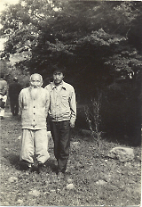 다석 류영모의 생존 직제자 임락경 "그는 3%의 성자"다석이 1981년 91세로 숨을 거둔 지 어언 40년이 넘게 흘러갔다. 다석을 스승으로 모시고 직접 가르침을 받은 제자들은 거의 모두 세상을 떠났다. 다석의 문하에서 배운 제자는 박영호 임락경(1945~ ) 두 사람뿐이다. 임 목사는 열일곱 살에 광주 동광원에 들어가 1년에 두 차례씩 동광원에 와서 강연을 하던 다석을 만났다. 서울 구기동에 살던 다석은 계명산 자락에 있는 벽제 동광원에도 자주 와서 말씀을 전했다. 임 목사는 양주 장흥의 동광원 남자 수도원에 있을 때 계명산을 넘어가 다석의 동광원 강의를 들었다. 임 목사는 다석의…2021-06-16 17:24:04
다석 류영모의 생존 직제자 임락경 "그는 3%의 성자"다석이 1981년 91세로 숨을 거둔 지 어언 40년이 넘게 흘러갔다. 다석을 스승으로 모시고 직접 가르침을 받은 제자들은 거의 모두 세상을 떠났다. 다석의 문하에서 배운 제자는 박영호 임락경(1945~ ) 두 사람뿐이다. 임 목사는 열일곱 살에 광주 동광원에 들어가 1년에 두 차례씩 동광원에 와서 강연을 하던 다석을 만났다. 서울 구기동에 살던 다석은 계명산 자락에 있는 벽제 동광원에도 자주 와서 말씀을 전했다. 임 목사는 양주 장흥의 동광원 남자 수도원에 있을 때 계명산을 넘어가 다석의 동광원 강의를 들었다. 임 목사는 다석의…2021-06-16 17:24:04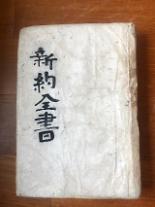 다석이 66년 간직했던 1909년판 신약성경 주셨죠다석의 문하에서 직접 가르침을 받은 제자들과 다석을 연구하는 학자, 다석의 뜻을 알리고 실천하는 수행자들을 만나 이야기를 듣는 이번 릴레이 인터뷰의 대상자는 모두 12명이다. 하다 보니 예수의 12 제자와 숫자가 같지만 전적으로 우연일 뿐이다. 코로나19 때문에 비(非)대면 인터뷰 방식을 활용했다. 캐나다 밴쿠버에 있는 오강남 교수와는 줌(Zoom)으로 인터뷰를 했다. 바깥 출입이 어렵고 청력이 약해진 박영호 회장과는 서면 인터뷰를 활용했다. 내가 질문지를 보내자 박 회장이 A4 용지 18장짜리 답변서를 등기우편으로 부쳤다.…2021-06-09 16:49:29
다석이 66년 간직했던 1909년판 신약성경 주셨죠다석의 문하에서 직접 가르침을 받은 제자들과 다석을 연구하는 학자, 다석의 뜻을 알리고 실천하는 수행자들을 만나 이야기를 듣는 이번 릴레이 인터뷰의 대상자는 모두 12명이다. 하다 보니 예수의 12 제자와 숫자가 같지만 전적으로 우연일 뿐이다. 코로나19 때문에 비(非)대면 인터뷰 방식을 활용했다. 캐나다 밴쿠버에 있는 오강남 교수와는 줌(Zoom)으로 인터뷰를 했다. 바깥 출입이 어렵고 청력이 약해진 박영호 회장과는 서면 인터뷰를 활용했다. 내가 질문지를 보내자 박 회장이 A4 용지 18장짜리 답변서를 등기우편으로 부쳤다.…2021-06-09 16:49:29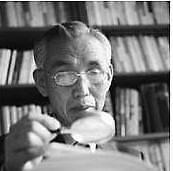 "반(半)무당이 된 외래 종교들"-후학들이 다석을 연구하고 펼치는 과정을 지켜보면서 어떤 생각이 듭니까? “다석은 ‘톨스토이와 나의 신앙은 비정통으로 이단’이라고 말하기를 서슴지 않았습니다. 그런데도 여러 신학자들과 학생들이 다석 사상으로 학위 논문을 쓰거나 저서를 냈습니다. 참으로 고맙고 기쁘기 그지없습니다. 최근에 아주경제 곽영길 회장의 유튜브의 금요명상과 이상국 논설실장이 다석의 생애와 사상을 100회나 연재한 것은 한얼님의 깊은 뜻에서 이루어진 것으로 믿습니다. 새벽 3시에 자리에서 일어나 덩실덩실 춤을 추며 감사하였습니다. 다석 사상…2021-06-02 16:32:55
"반(半)무당이 된 외래 종교들"-후학들이 다석을 연구하고 펼치는 과정을 지켜보면서 어떤 생각이 듭니까? “다석은 ‘톨스토이와 나의 신앙은 비정통으로 이단’이라고 말하기를 서슴지 않았습니다. 그런데도 여러 신학자들과 학생들이 다석 사상으로 학위 논문을 쓰거나 저서를 냈습니다. 참으로 고맙고 기쁘기 그지없습니다. 최근에 아주경제 곽영길 회장의 유튜브의 금요명상과 이상국 논설실장이 다석의 생애와 사상을 100회나 연재한 것은 한얼님의 깊은 뜻에서 이루어진 것으로 믿습니다. 새벽 3시에 자리에서 일어나 덩실덩실 춤을 추며 감사하였습니다. 다석 사상…2021-06-02 16:32:55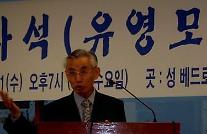 다석 "공산유토피아 때문에 사람 죽여도 되는가"-다석이 종교는 ‘상놈의 종교’가 돼야 한다고 말했는데, 당시 조선에서 시대적으로 어떤 의미가 있는지요? “다석은 스스로 19세기 사람이라고 말하곤 했습니다. 1890년에 태어났는데 1910년에 조선조가 멸망했습니다. 중병에 걸려 하루하루 쇠약해지듯 나라가 멸망해가는 모습을 지켜보면서 자라다가 20살이 되었을 때 기어이 조선조가 사라졌습니다. 15살 때 기독신자(크리스천)가 되어 연동교회에 나가기 시작한 것도 의지할 나라가 없어지자 교회라도 의지해보려고 나가게 된 것입니다. 나라가 멸망하자 나라를 찾으려는 우국지사들이 …2021-05-26 17:11:01
다석 "공산유토피아 때문에 사람 죽여도 되는가"-다석이 종교는 ‘상놈의 종교’가 돼야 한다고 말했는데, 당시 조선에서 시대적으로 어떤 의미가 있는지요? “다석은 스스로 19세기 사람이라고 말하곤 했습니다. 1890년에 태어났는데 1910년에 조선조가 멸망했습니다. 중병에 걸려 하루하루 쇠약해지듯 나라가 멸망해가는 모습을 지켜보면서 자라다가 20살이 되었을 때 기어이 조선조가 사라졌습니다. 15살 때 기독신자(크리스천)가 되어 연동교회에 나가기 시작한 것도 의지할 나라가 없어지자 교회라도 의지해보려고 나가게 된 것입니다. 나라가 멸망하자 나라를 찾으려는 우국지사들이 …2021-05-26 17:11:01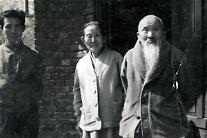 함석헌을 존경해 뵈었더니 '진짜 하늘같은 다석' 말해줬다-박영호 선생이 다석을 처음 만나 배움을 시작했을 때가 대략 중학교 시절이라고 들었는데요. 어린 나이에 어떻게 그분과 인연을 맺었는지요? “어릴 때의 일이라면 눈물부터 글썽거리게 됩니다. 초등학교 때부터 일제의 교육을 받았습니다. 공부는 안 가르치고 군사 훈련을 실시하고 근로봉사라 하여 일을 시켰습니다. 강변을 개간하고 솔가지를 따오게 하고 농사일을 강요했지요. 젊은이들이 군인으로 징집되고 보국대에 끌려가고 농사 지을 인력이 모자라니까 초등학생들이나 중학생을 끌어다 농사일을 시켰습니다. 일본인 선생들에게…2021-05-19 14:09:16
함석헌을 존경해 뵈었더니 '진짜 하늘같은 다석' 말해줬다-박영호 선생이 다석을 처음 만나 배움을 시작했을 때가 대략 중학교 시절이라고 들었는데요. 어린 나이에 어떻게 그분과 인연을 맺었는지요? “어릴 때의 일이라면 눈물부터 글썽거리게 됩니다. 초등학교 때부터 일제의 교육을 받았습니다. 공부는 안 가르치고 군사 훈련을 실시하고 근로봉사라 하여 일을 시켰습니다. 강변을 개간하고 솔가지를 따오게 하고 농사일을 강요했지요. 젊은이들이 군인으로 징집되고 보국대에 끌려가고 농사 지을 인력이 모자라니까 초등학생들이나 중학생을 끌어다 농사일을 시켰습니다. 일본인 선생들에게…2021-05-19 14:09:16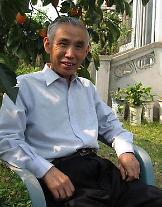 어미소 젖을 빨듯이 다석의 가르침을 받았다다석을 직접 만나 그의 말씀을 듣던 제자와 지인들은 거의 세상을 떠나고 박영호 다석사상연구회장과 임락경 목사가 생존해 있다. 소중한 증인들이다. 박 회장은 다석한테서 유일하게 마침보람(졸업장)을 받은 제자다. 다석전기를 집필하고, 문화일보에 325회에 걸쳐 ‘다석의 생각과 믿음’을 연재해 다석을 세상에 알리는 데 큰 공헌을 했다. 박 회장을 댁으로 찾아가 인터뷰하려고 했으나 고령(87세)에 코로나 때문에 바깥출입을 삼가고 있었다. 인터뷰 확답을 얻지 못한 상태에서 질문을 만들어 등기우편으로 부쳤더니 “열심히 답변을 …2021-05-12 15:03:35
어미소 젖을 빨듯이 다석의 가르침을 받았다다석을 직접 만나 그의 말씀을 듣던 제자와 지인들은 거의 세상을 떠나고 박영호 다석사상연구회장과 임락경 목사가 생존해 있다. 소중한 증인들이다. 박 회장은 다석한테서 유일하게 마침보람(졸업장)을 받은 제자다. 다석전기를 집필하고, 문화일보에 325회에 걸쳐 ‘다석의 생각과 믿음’을 연재해 다석을 세상에 알리는 데 큰 공헌을 했다. 박 회장을 댁으로 찾아가 인터뷰하려고 했으나 고령(87세)에 코로나 때문에 바깥출입을 삼가고 있었다. 인터뷰 확답을 얻지 못한 상태에서 질문을 만들어 등기우편으로 부쳤더니 “열심히 답변을 …2021-05-12 15:03:35 다석같은 큰 스승 다시보기 어렵습니다정 신부는 책 머리에 고은 시인의 중 를 옮겨 놓았다. 고은의 시는 다석의 삶을 시적으로 잘 표현했는데 마지막 연이 걸린다. 여기저기 도토리 나무 솎아 베는 나무꾼만 못함이여 무슨 큰 뜻이 있는 듯하나 그저 부질없음이여 -고은의 시가 다석이라는 큰 인물에 대해 불경스러운 표현을 쓴 것 아닌가요? “세계 위인들을 칭송하는 찬탄사도 많고 헐뜯는 말도 많아요. 서울대 법대생 제자가 하루는 다석 선생을 찾아가 물었어요. ‘부처님과 예수님을 비교하면 누가 더 훌륭합니까?’ 다석이 간단하게 대답했습니다. ‘비교 연구해야 하는…2021-05-05 16:29:26
다석같은 큰 스승 다시보기 어렵습니다정 신부는 책 머리에 고은 시인의 중 를 옮겨 놓았다. 고은의 시는 다석의 삶을 시적으로 잘 표현했는데 마지막 연이 걸린다. 여기저기 도토리 나무 솎아 베는 나무꾼만 못함이여 무슨 큰 뜻이 있는 듯하나 그저 부질없음이여 -고은의 시가 다석이라는 큰 인물에 대해 불경스러운 표현을 쓴 것 아닌가요? “세계 위인들을 칭송하는 찬탄사도 많고 헐뜯는 말도 많아요. 서울대 법대생 제자가 하루는 다석 선생을 찾아가 물었어요. ‘부처님과 예수님을 비교하면 누가 더 훌륭합니까?’ 다석이 간단하게 대답했습니다. ‘비교 연구해야 하는…2021-05-05 16:29:26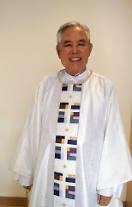 "제사 문제로 수많은 순교…가톨릭 주교단이 사과해야"정양모 신부의 집안은 증조부부터 6대가 가톨릭을 믿는다. 고종 때인 1887년 증조부모가 가톨릭에 입교했다. 가톨릭이 조선에 들어온 후 100년 동안 박해를 받다가 신앙의 자유를 얻은 것은 1886년 5월 1일 한불수호통상조약이 체결되고 나서다. 이 조약에 종교의 자유를 보장한다고 명기함으로써 수많은 가톨릭 신도들이 참수당한 박해의 시대가 끝났다. 정 신부의 집안은 다음 해에 가톨릭에 입교했다. 정 신부는 1960년부터 10년 동안 프랑스 독일 이스라엘에서 공부를 한 뒤 광주가톨릭대학과 서강대학에서 교수를 지내고 말년에는 성…2021-04-28 16:53:49
"제사 문제로 수많은 순교…가톨릭 주교단이 사과해야"정양모 신부의 집안은 증조부부터 6대가 가톨릭을 믿는다. 고종 때인 1887년 증조부모가 가톨릭에 입교했다. 가톨릭이 조선에 들어온 후 100년 동안 박해를 받다가 신앙의 자유를 얻은 것은 1886년 5월 1일 한불수호통상조약이 체결되고 나서다. 이 조약에 종교의 자유를 보장한다고 명기함으로써 수많은 가톨릭 신도들이 참수당한 박해의 시대가 끝났다. 정 신부의 집안은 다음 해에 가톨릭에 입교했다. 정 신부는 1960년부터 10년 동안 프랑스 독일 이스라엘에서 공부를 한 뒤 광주가톨릭대학과 서강대학에서 교수를 지내고 말년에는 성…2021-04-28 16:53:49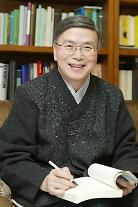 서구 중심적 하느님 신화를 거부한 다석의 '비빔밥 정신'인터뷰어는 시리즈 인터뷰의 대상자들에게 사전에 질문지를 보냈다. 종교와 사상에 관한 인터뷰라서 깊이 있는 이야기를 듣자는 뜻이었다. 이 교수에게도 질문지를 보냈더니 A4로 21페이지나 되는 답변서를 미리 보냈다. 이 교수는 저서가 20여 권에 이르고 네이버 블로그에도 왕성하게 글을 올린다. 서면 답변만 정리해도 인터뷰에 충분한 분량이었지만 아주경제 스튜디오에서 유튜브 동영상을 촬영해야 했다. 집안 사정 때문에 외출하기가 어려운 상황인데도 다석 사상을 알리는 인터뷰를 위해 이 교수는 어렵게 시간을 냈다. 서면 답…2021-04-21 13:51:44
서구 중심적 하느님 신화를 거부한 다석의 '비빔밥 정신'인터뷰어는 시리즈 인터뷰의 대상자들에게 사전에 질문지를 보냈다. 종교와 사상에 관한 인터뷰라서 깊이 있는 이야기를 듣자는 뜻이었다. 이 교수에게도 질문지를 보냈더니 A4로 21페이지나 되는 답변서를 미리 보냈다. 이 교수는 저서가 20여 권에 이르고 네이버 블로그에도 왕성하게 글을 올린다. 서면 답변만 정리해도 인터뷰에 충분한 분량이었지만 아주경제 스튜디오에서 유튜브 동영상을 촬영해야 했다. 집안 사정 때문에 외출하기가 어려운 상황인데도 다석 사상을 알리는 인터뷰를 위해 이 교수는 어렵게 시간을 냈다. 서면 답…2021-04-21 13:51:44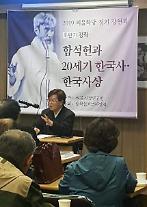 서구가 만든 하느님을 거부한 '비빔밥 영성'인터뷰어는 시리즈 인터뷰의 대상자들에게 사전에 질문지를 보냈다. 종교와 사상에 관한 인터뷰라서 깊이 있는 이야기를 듣자는 뜻이었다. 이 교수에게도 질문지를 보냈더니 A4로 21페이지나 되는 답변서를 미리 보냈다. 이 교수는 저서가 20여 권에 이르고 네이버 블로그에도 왕성하게 글을 올린다. 서면 답변만 정리해도 인터뷰에 충분한 분량이었지만 아주경제 스튜디오에서 유튜브 동영상을 촬영해야 했다. 집안 사정 때문에 외출하기가 어려운 상황인데도 다석 사상을 알리는 인터뷰를 위해 이 교수는 어렵게 시간을 냈다. 서면 답…2021-04-21 13:42:17
서구가 만든 하느님을 거부한 '비빔밥 영성'인터뷰어는 시리즈 인터뷰의 대상자들에게 사전에 질문지를 보냈다. 종교와 사상에 관한 인터뷰라서 깊이 있는 이야기를 듣자는 뜻이었다. 이 교수에게도 질문지를 보냈더니 A4로 21페이지나 되는 답변서를 미리 보냈다. 이 교수는 저서가 20여 권에 이르고 네이버 블로그에도 왕성하게 글을 올린다. 서면 답변만 정리해도 인터뷰에 충분한 분량이었지만 아주경제 스튜디오에서 유튜브 동영상을 촬영해야 했다. 집안 사정 때문에 외출하기가 어려운 상황인데도 다석 사상을 알리는 인터뷰를 위해 이 교수는 어렵게 시간을 냈다. 서면 답…2021-04-21 13:42:17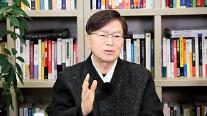 이성과 존재의 태양을 꺼야 별이 보인다이기상은 가톨릭 모태 신자로 신부의 길을 가기 위해 서울 종로구 혜화동에 있는 성신고등학교에 다녔다. 신부 지망생들은 엄격한 규율 아래 전원 기숙사 생활을 했다. 그는 성신고등학교 기숙사 골방에서 ‘나는 누구인가’ ‘신은 존재하는가’ ‘나는 어떻게 살아야 하나’ 같은 물음이 시작됐다고 말한다. 가톨릭 대학 신학부를 졸업하고 1972년 벨기에 루뱅 대학에 신학을 공부하러 갔다. 그의 자전적(自傳的)인 글에 따르면 유학 가서 처음 일 년 동안 유럽의 그리스도교가 죽어가고 있는 현실에 충격을 받았다. 신앙의 정신이 사라진 유…2021-04-14 16:49:28
이성과 존재의 태양을 꺼야 별이 보인다이기상은 가톨릭 모태 신자로 신부의 길을 가기 위해 서울 종로구 혜화동에 있는 성신고등학교에 다녔다. 신부 지망생들은 엄격한 규율 아래 전원 기숙사 생활을 했다. 그는 성신고등학교 기숙사 골방에서 ‘나는 누구인가’ ‘신은 존재하는가’ ‘나는 어떻게 살아야 하나’ 같은 물음이 시작됐다고 말한다. 가톨릭 대학 신학부를 졸업하고 1972년 벨기에 루뱅 대학에 신학을 공부하러 갔다. 그의 자전적(自傳的)인 글에 따르면 유학 가서 처음 일 년 동안 유럽의 그리스도교가 죽어가고 있는 현실에 충격을 받았다. 신앙의 정신이 사라진 유…2021-04-14 16:49:28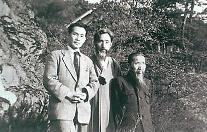 말기 암환자가 하루라도 더 살려는 건 다석 알리기 위해서죠독립운동가, 농민운동가이자 교육자였던 성천 유달영(1911~2004)은 함석헌과 함게 다석이 아끼던 제자다. 유달영은 농장이 경부고속도로에 편입되면서 받은 보상금으로 성천문화재단을 설립했다. 그의 좌우명이 호학위공(好學爲公)이다. 열심히 배워서 공익을 위해 봉사하자는 것이다. 다석사상연구회는 매주 화요일 서울 여의도 성천문화재단 사무실에서 공부 모임을 갖고 있다. “2015년 다석 공부를 하려고 한국에 왔거든요. 한국에 나온 동기가 다석 사상을 제대로 공부해 한국에 널리 보급해보겠다는 것이었어요. 20년 전에 처음 접했…2021-04-07 17:03:15
말기 암환자가 하루라도 더 살려는 건 다석 알리기 위해서죠독립운동가, 농민운동가이자 교육자였던 성천 유달영(1911~2004)은 함석헌과 함게 다석이 아끼던 제자다. 유달영은 농장이 경부고속도로에 편입되면서 받은 보상금으로 성천문화재단을 설립했다. 그의 좌우명이 호학위공(好學爲公)이다. 열심히 배워서 공익을 위해 봉사하자는 것이다. 다석사상연구회는 매주 화요일 서울 여의도 성천문화재단 사무실에서 공부 모임을 갖고 있다. “2015년 다석 공부를 하려고 한국에 왔거든요. 한국에 나온 동기가 다석 사상을 제대로 공부해 한국에 널리 보급해보겠다는 것이었어요. 20년 전에 처음 접했…2021-04-07 17:03:15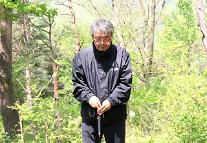 날 목사로 이끈 다석사상 책 백번 읽었죠최성무 목사는 호주에서 신학대학을 졸업하고 목사 안수를 받을 때 두 가지 서원(誓願)을 했다. 첫째 예수는 십자가에서 돌아가셨지만 자신은 목회하다 굶어 죽겠다는 것이었다. 둘째 사례비를 받지 않고 목회를 하겠다는 결심이었다. 그는 호주에서 목사를 하면서 돈벌이 직업으로 청소를 택했다. 호주에서 클리너(cleaner)라고 부르는 직업을 혼자 할 때도 있었고, 많게는 수십 명 또는 일백여 명 종업원을 데리고 있었다. 종업원은 대부분 교회 식구들이었다. 호주에서는 목사나 승려가 교회, 사찰을 세워 신도 수가 70~80명에 이르면 …2021-03-31 16:57:47
날 목사로 이끈 다석사상 책 백번 읽었죠최성무 목사는 호주에서 신학대학을 졸업하고 목사 안수를 받을 때 두 가지 서원(誓願)을 했다. 첫째 예수는 십자가에서 돌아가셨지만 자신은 목회하다 굶어 죽겠다는 것이었다. 둘째 사례비를 받지 않고 목회를 하겠다는 결심이었다. 그는 호주에서 목사를 하면서 돈벌이 직업으로 청소를 택했다. 호주에서 클리너(cleaner)라고 부르는 직업을 혼자 할 때도 있었고, 많게는 수십 명 또는 일백여 명 종업원을 데리고 있었다. 종업원은 대부분 교회 식구들이었다. 호주에서는 목사나 승려가 교회, 사찰을 세워 신도 수가 70~80명에 이르면 …2021-03-31 16:57:47 다석은 새로운 영성의 종교혁명가1950, 60년대 시골 교회에서 부흥회가 열리면 유명한 부흥 목사들이 와서 현란한 쇼맨십을 보여주는 설교를 했다. 요즘 케이블 채널에서 인기를 끄는 장경동 목사를 연상하면 될 것이다. TV도 없었을 때의 이야기다. 교육 수준이 낮고 성경을 잘 모르는 사람들을 우선 교회로 끌어들이는 데 효과적인 선교 방식이었다. 머리말에 나온 것처럼 다석이 동광원에서 한 강의는 학력이 거의 없는 신도들을 상대로 비교적 쉽게 풀어서 한 말씀이다. 그래도 여전히 딱딱하고 어렵다. 엔터테이너 부흥사가 인기를 끌던 시대에 다석을 모셔와 강의…2021-03-24 16:43:38
다석은 새로운 영성의 종교혁명가1950, 60년대 시골 교회에서 부흥회가 열리면 유명한 부흥 목사들이 와서 현란한 쇼맨십을 보여주는 설교를 했다. 요즘 케이블 채널에서 인기를 끄는 장경동 목사를 연상하면 될 것이다. TV도 없었을 때의 이야기다. 교육 수준이 낮고 성경을 잘 모르는 사람들을 우선 교회로 끌어들이는 데 효과적인 선교 방식이었다. 머리말에 나온 것처럼 다석이 동광원에서 한 강의는 학력이 거의 없는 신도들을 상대로 비교적 쉽게 풀어서 한 말씀이다. 그래도 여전히 딱딱하고 어렵다. 엔터테이너 부흥사가 인기를 끌던 시대에 다석을 모셔와 강의…2021-03-24 16:43:38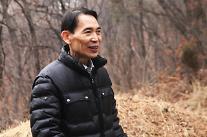 다석은 통일 대신 귀일(歸一)하자고 했죠광주 동광원과 벽제 동광원은 육신의 즐거움을 끊고 고신극기(苦身克己)의 삶을 산 무명(無名)의 성자 이세종 이현필과 다석 류영모의 정신이 서려 있는 곳이다. 다석은 1948년 광주 동광원 수양회에서 첫 강의를 했고 1971년 여름 수양회까지 매년 연초와 광복절 전후에 광주에 찾아와 말씀을 전했다. 다석이 81세이던 1971년 동광원 여름 수양회에서 한 마지막 강의는 학력이 낮은 동광원 사람들이 알아듣기 쉽게 다석의 신앙과 생각을 풀어내 소중한 자료로 남았다. 심중식 귀일연구소장이 오래 돼서 녹음 상태가 좋지 않은 테이프를 …2021-03-17 17:09:10
다석은 통일 대신 귀일(歸一)하자고 했죠광주 동광원과 벽제 동광원은 육신의 즐거움을 끊고 고신극기(苦身克己)의 삶을 산 무명(無名)의 성자 이세종 이현필과 다석 류영모의 정신이 서려 있는 곳이다. 다석은 1948년 광주 동광원 수양회에서 첫 강의를 했고 1971년 여름 수양회까지 매년 연초와 광복절 전후에 광주에 찾아와 말씀을 전했다. 다석이 81세이던 1971년 동광원 여름 수양회에서 한 마지막 강의는 학력이 낮은 동광원 사람들이 알아듣기 쉽게 다석의 신앙과 생각을 풀어내 소중한 자료로 남았다. 심중식 귀일연구소장이 오래 돼서 녹음 상태가 좋지 않은 테이프를 …2021-03-17 17:09:10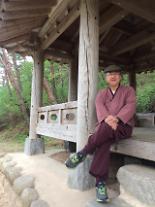 한국의 골짜기 정신에서 세계 사상 나온다조선 사회는 유교 중에서도 가장 근본주의적인 성리학의 지배를 받으면서 본산인 중국보다 더 유교적인 사회가 됐다. 유학의 지나친 보수성과 배타성으로 결국 조선 유교사회를 멸망시켰다고 김흡영 교수는 에서 지적한다. 삼국시대에 전래된 불교는 통일신라와 고려를 거쳐 1,000년 동안 꽃을 피웠다. 조선에서 억불숭유(抑佛崇儒)를 했다고 하지만 민간에서는 물론이고 왕실의 여인들까지도 불교 신앙에 의지했다. 조선은 국방의 중요 부문을 사찰과 승려에 의존할 정도였다. 개신교는 유교 불교에 비해 역사가 짧지만 세계 최대의 교회…2021-03-10 16:28:42
한국의 골짜기 정신에서 세계 사상 나온다조선 사회는 유교 중에서도 가장 근본주의적인 성리학의 지배를 받으면서 본산인 중국보다 더 유교적인 사회가 됐다. 유학의 지나친 보수성과 배타성으로 결국 조선 유교사회를 멸망시켰다고 김흡영 교수는 에서 지적한다. 삼국시대에 전래된 불교는 통일신라와 고려를 거쳐 1,000년 동안 꽃을 피웠다. 조선에서 억불숭유(抑佛崇儒)를 했다고 하지만 민간에서는 물론이고 왕실의 여인들까지도 불교 신앙에 의지했다. 조선은 국방의 중요 부문을 사찰과 승려에 의존할 정도였다. 개신교는 유교 불교에 비해 역사가 짧지만 세계 최대의 교회…2021-03-10 16:28:42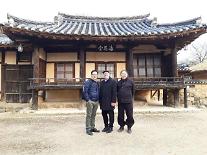 다석 사상은 한국 신학의 광맥경북 영주는 중국에서 들여온 한국 유학의 본향이다. 우리나라에 처음으로 성리학을 도입한 안향(安享)을 배향하는 소수서원이 자리잡고 있다. 소수서원에서 차로 30분 정도 거리에 있는 무섬마을은 낙동강의 지류인 내성천이 감싸고 흘러가는 전형적인 물도리 마을이다. 다양한 형태의 구조를 지닌 40여 채 고택이 옛 그대로 남아 있다. 반남 박씨와 선성 김씨의 집성촌이다. 이 마을에서 가장 큰 집이 해우당(海愚堂) 고택이다. 이 건물은 선성 김씨 입향조인 김대(金臺)의 손자가 1830년에 건립했고 고종 때 의금부 도사를 지낸 해우당…2021-03-03 15:38:11
다석 사상은 한국 신학의 광맥경북 영주는 중국에서 들여온 한국 유학의 본향이다. 우리나라에 처음으로 성리학을 도입한 안향(安享)을 배향하는 소수서원이 자리잡고 있다. 소수서원에서 차로 30분 정도 거리에 있는 무섬마을은 낙동강의 지류인 내성천이 감싸고 흘러가는 전형적인 물도리 마을이다. 다양한 형태의 구조를 지닌 40여 채 고택이 옛 그대로 남아 있다. 반남 박씨와 선성 김씨의 집성촌이다. 이 마을에서 가장 큰 집이 해우당(海愚堂) 고택이다. 이 건물은 선성 김씨 입향조인 김대(金臺)의 손자가 1830년에 건립했고 고종 때 의금부 도사를 지낸 해우당…2021-03-03 15:38:11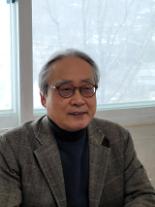 21세기 생태문명의 맹아를 담은 다석 사상이정배 교수의 스승인 변선환 전 감신대 학장은 “교회 밖에도 구원이 있다”는 폭탄 선언과 함께 기독교의 절대성을 부정하고, 종교다원주의를 제창했다. 그는 기독교와 불교 간 대화를 중심으로 종교간 대화를 활성화하는 운동도 벌였다. 그러다 결국 보수적인 기독교계 목사들의 표적이 되다시피 해 소속된 감리교단으로부터 출교(黜敎)당했다. 변선환 신학을 계승한 대표적인 제자가 이정배 교수다. -변선환 학장이 1992년 금란교회 김홍도 목사가 주도하는 교리수호대책위원회로부터 출교 조처를 당했더군요. 김홍도 목사는 지난해 광…2021-02-24 16:06:56
21세기 생태문명의 맹아를 담은 다석 사상이정배 교수의 스승인 변선환 전 감신대 학장은 “교회 밖에도 구원이 있다”는 폭탄 선언과 함께 기독교의 절대성을 부정하고, 종교다원주의를 제창했다. 그는 기독교와 불교 간 대화를 중심으로 종교간 대화를 활성화하는 운동도 벌였다. 그러다 결국 보수적인 기독교계 목사들의 표적이 되다시피 해 소속된 감리교단으로부터 출교(黜敎)당했다. 변선환 신학을 계승한 대표적인 제자가 이정배 교수다. -변선환 학장이 1992년 금란교회 김홍도 목사가 주도하는 교리수호대책위원회로부터 출교 조처를 당했더군요. 김홍도 목사는 지난해 광…2021-02-24 16:06:56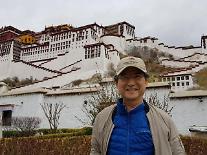 코로나 이후 교회, 기복 신앙 힘 잃을 것내가 오 교수와 처음 만난 것은 동아일보 논설위원을 하던 2001년경이다. 오 교수는 그때 현암사에서 라는 책을 펴냈다. 나는 이 책을 읽고 기독교에 대해 새로운 개안(開眼)을 하는 느낌을 받고 동아닷컴에 칼럼을 썼다. 이 칼럼을 읽은 오 교수가 서울에 왔을 때 신문사로 찾아와 처음 만나게 됐다. 그 뒤로 나는 종교에 관한 글을 쓸 때마다 그에게 전화나 메일로 자문(諮問)을 했다. 는 2001년 5월 초판이 나온 이래 개정판까지 42쇄를 찍은 장기 베스트셀러다. 그런데 인터넷에 올라와 있는 글들을 보면 정통 기독교인 중에는 오 교…2021-02-04 16:26:45
코로나 이후 교회, 기복 신앙 힘 잃을 것내가 오 교수와 처음 만난 것은 동아일보 논설위원을 하던 2001년경이다. 오 교수는 그때 현암사에서 라는 책을 펴냈다. 나는 이 책을 읽고 기독교에 대해 새로운 개안(開眼)을 하는 느낌을 받고 동아닷컴에 칼럼을 썼다. 이 칼럼을 읽은 오 교수가 서울에 왔을 때 신문사로 찾아와 처음 만나게 됐다. 그 뒤로 나는 종교에 관한 글을 쓸 때마다 그에게 전화나 메일로 자문(諮問)을 했다. 는 2001년 5월 초판이 나온 이래 개정판까지 42쇄를 찍은 장기 베스트셀러다. 그런데 인터넷에 올라와 있는 글들을 보면 정통 기독교인 중에는 오 교…2021-02-04 16:26:45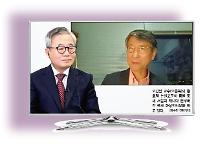 文字를 넘어 신의 속나를 보라아주경제와 유튜브 채널 '다석의 생각교실'이 공동 기획한 '내가 본 다석, 내가 들은 류영모'의 두 번째 인터뷰이는 비교종교학으로 명망이 높은 캐나다 리자이나 대학교 오강남 명예교수다. 코로나 19로 오 교수가 한국에 오지 못하고, 나를 비롯한 취재진이 캐나다로 갈 수도 없는 상황에서 줌(Zoom)을 이용해 인터뷰가 이뤄졌다. 대학을 갓 졸업한 유수민 인턴기자가 카카오톡 통화로 오 교수에게 줌 작동법을 코치하기 시작한 지 몇 분 만에 오 교수의 얼굴이 화면에 나타나고 목소리가 들렸다. 음성 전달에서 캐나다…2021-01-27 16:49:12
文字를 넘어 신의 속나를 보라아주경제와 유튜브 채널 '다석의 생각교실'이 공동 기획한 '내가 본 다석, 내가 들은 류영모'의 두 번째 인터뷰이는 비교종교학으로 명망이 높은 캐나다 리자이나 대학교 오강남 명예교수다. 코로나 19로 오 교수가 한국에 오지 못하고, 나를 비롯한 취재진이 캐나다로 갈 수도 없는 상황에서 줌(Zoom)을 이용해 인터뷰가 이뤄졌다. 대학을 갓 졸업한 유수민 인턴기자가 카카오톡 통화로 오 교수에게 줌 작동법을 코치하기 시작한 지 몇 분 만에 오 교수의 얼굴이 화면에 나타나고 목소리가 들렸다. 음성 전달에서 캐나다…2021-01-27 16:49:12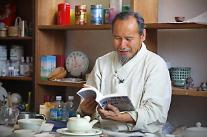 "나를 섬기면 종교된다" 다석이 경계윤 신부와 나는 1955년생 양띠 갑장이다. 같은 해에 태어나 같은 교과서(국정)를 읽고 박종철 사건을 비롯해 동세대의 경험을 공유했다는 이야기다. 나이를 알고 나니 또래집단(cohort) 의식이 생겼다. 윤 신부가 차를 따를 동안에 서울서 갖고 간 내 저서 ‘박종철 탐사보도와 6월항쟁’을 내놓았다. 내가 “제가 3년 전에 쓴 책인데요. 박종철 탐사보도가 6월 항쟁의 불꽃에 기름을 부었다는 관점에서 썼습니다”라고 하자 그는 “6월항쟁이면 제가 사제 서품받았을 때인데…”라며 책을 들춰봤다. 나중에 보니 “없이 계시는 하나님” 박사학위…2021-01-20 16:16:48
"나를 섬기면 종교된다" 다석이 경계윤 신부와 나는 1955년생 양띠 갑장이다. 같은 해에 태어나 같은 교과서(국정)를 읽고 박종철 사건을 비롯해 동세대의 경험을 공유했다는 이야기다. 나이를 알고 나니 또래집단(cohort) 의식이 생겼다. 윤 신부가 차를 따를 동안에 서울서 갖고 간 내 저서 ‘박종철 탐사보도와 6월항쟁’을 내놓았다. 내가 “제가 3년 전에 쓴 책인데요. 박종철 탐사보도가 6월 항쟁의 불꽃에 기름을 부었다는 관점에서 썼습니다”라고 하자 그는 “6월항쟁이면 제가 사제 서품받았을 때인데…”라며 책을 들춰봤다. 나중에 보니 “없이 계시는 하나님” 박사학위…2021-01-20 16:16:48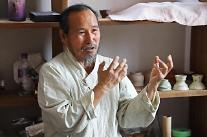 "그분은 제 소리를 냈던 사람입니다"윤정현 신부는 인터뷰에서 "다석은 동양철학과 기독교 사상을 회통했던 큰 스승"이라고 말했다. [사진=유수민 인턴기자] 한국이 낳은 위대한 종교 철학자 다석(多夕) 류영모(1890~1981)는 19세기 말에 태어나 20세기 후반에 세상을 떠났다. 지금 지구는 다른 종교를 배척하는 근본주의 신앙으로 인한 전쟁과 살육이 그치지 않는다. 한국같은 다원주의 종교국가에서도 종교간 갈등이 심한 편이다. 세계의 한쪽에서는 탈(脫)종교 현상이 번지고, 다른 쪽에서는 근본주의 종교가 세계 평화를 깨트린다. 다석이 서구의 기독교 정신과 동양…2021-01-13 19:14:20
"그분은 제 소리를 냈던 사람입니다"윤정현 신부는 인터뷰에서 "다석은 동양철학과 기독교 사상을 회통했던 큰 스승"이라고 말했다. [사진=유수민 인턴기자] 한국이 낳은 위대한 종교 철학자 다석(多夕) 류영모(1890~1981)는 19세기 말에 태어나 20세기 후반에 세상을 떠났다. 지금 지구는 다른 종교를 배척하는 근본주의 신앙으로 인한 전쟁과 살육이 그치지 않는다. 한국같은 다원주의 종교국가에서도 종교간 갈등이 심한 편이다. 세계의 한쪽에서는 탈(脫)종교 현상이 번지고, 다른 쪽에서는 근본주의 종교가 세계 평화를 깨트린다. 다석이 서구의 기독교 정신과 동양…2021-01-13 19:14:20
